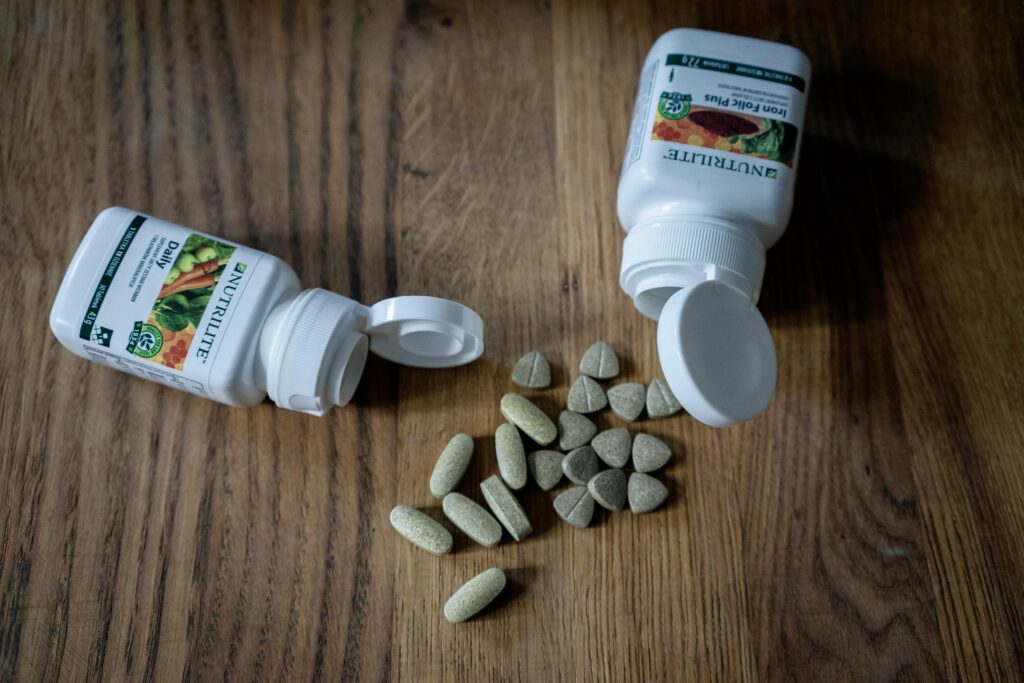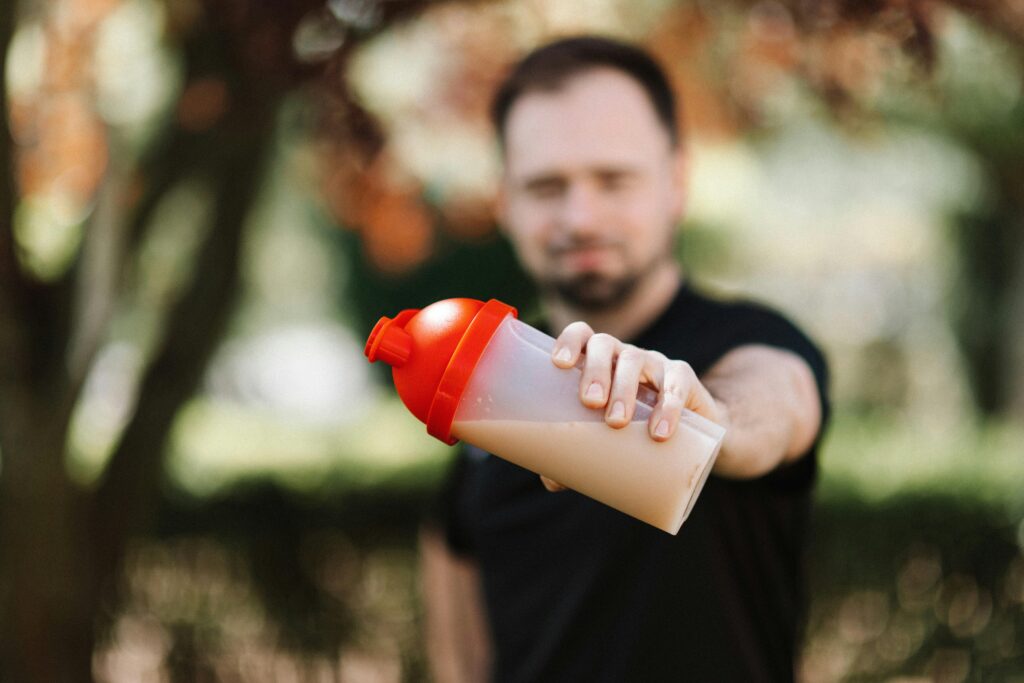
So, you’ve gone vegan—or you’re thinking about it. Maybe it’s for the animals, the environment, your health, or all of the above. Whatever brought you here, welcome! But now you might be wondering: Do I need to take supplements as a vegan? Will a plant-based diet give me everything I need?
The reality is that most people—regardless of their dietary habits—benefit from some supplementation. On a plant-based diet, there are specific supplements that you can benefit from.
The Most Common Nutrients Vegans May Need to Supplement
Needing a supplement doesn’t mean your diet is “bad” or “incomplete.” All diets—plant-based or not—can fall short in certain areas. For example, many omnivores are low in fiber (which plants have in abundance), and a significant number of people, regardless of their diet, are also low in vitamin D or omega-3s.
Supplements are just tools. Think of them like a backup plan, not a failure of your lifestyle.
Vitamin B12
Let’s start with the big one. B12 is essential for your brain, energy levels, and the production of red blood cells. It’s naturally found in animal products but not in plant foods (unless they’re fortified).
If you’re vegan, you absolutely need a reliable source of B12. That can be:
- A daily or weekly B12 supplement
- Fortified foods like plant milk, cereals, or nutritional yeast (nooch)
A supplement is the simplest way to guarantee you’re getting enough. It’s inexpensive, easy to find, and crucial for long-term health.
Vitamin D
Vitamin D is another one that can be tricky to get enough of, whether you’re vegan or not. It’s essential for mood, immunity, and bone health. We mainly get it from sun exposure, but if you live somewhere cloudy or spend most of your time indoors, a supplement is a smart move. Many people benefit from taking vitamin D in the fall and winter, even if they’re not vegan.
You can find vegan-friendly vitamin D2 and D3 (make sure the D3 is plant-based or made from lichen).
Omega-3s (ALA, EPA, DHA)
Omega-3 fatty acids support heart, brain, and joint health. While flaxseeds, chia seeds, and walnuts provide ALA (a type of omega-3), our bodies aren’t very efficient at converting ALA into EPA and DHA—the forms your body uses.
Many people assume that you need fish to get your omegas, but the truth is that microalgae synthesize DHA and EPA. Eventually, these fatty acids accumulate in fish tissue, leading people to assume that the fish is the source of the nutrients.
That’s where algae-based omega-3 supplements come in. They’re vegan and provide EPA and DHA directly—without the need for fish.
You should consider an omega supplement, especially if you’re not regularly eating flax, chia, or walnuts, or just want peace of mind.
Iron
Plants contain iron, but it’s a type called non-heme iron, which your body doesn’t absorb as well as the heme iron in meat. Still, many vegans get enough iron—especially if they’re eating lentils, beans, tofu, dark leafy greens, and fortified cereals. Pair iron-rich foods with vitamin C to boost absorption.
Menstruating people, those with low iron levels, or anyone who feels chronically tired despite eating a balanced diet benefit from an iron supplement. Always get your levels checked before supplementing with iron—it’s not something to overdo.
Calcium
You don’t need dairy to get calcium, but you do need to be intentional. Calcium supports your bones, teeth, muscles, and more.
Look for:
- Fortified plant milk and juices
- Tofu made with calcium sulfate
- Kale, broccoli, and almonds
If you’re not regularly consuming calcium-rich foods, a supplement may help fill the nutritional gap.
Zinc
Zinc plays a crucial role in numerous bodily functions, including immune function, wound healing, and even the sense of taste. It’s found in nuts, seeds, legumes, and whole grains—but like iron, it’s not as easily absorbed from plant sources.
If you often feel run-down or have slow-healing cuts, low zinc levels may be a contributing factor. Food-first sources are best unless your healthcare provider suggests otherwise.

What About Performance Supplements?
If you’re working out regularly or trying to build strength and endurance on a plant-based diet, you might be wondering about fitness-focused supplements. Good news: You’ve got options!
Vegan Protein Powder
Can you get enough protein from whole plant foods? Yes. But if you’re active, short on time, or have higher protein needs, protein powder can be beneficial.
Most vegan protein powders are made from:
- Pea protein
- Brown rice protein
- Hemp, soy, or mixed plant sources
They’re easy to add to smoothies, oatmeal, or post-workout shakes—and they’re great for making sure you hit your protein goals. A couple of my favorite brands are Vega and Beyond Yourself. Both have delicious flavors, and the macros are great.
Creatine
Creatine is one of the most studied and effective supplements for strength, power, and muscle recovery. It helps you lift heavier, recover faster, and build lean muscle.
Our bodies make creatine naturally, but it’s also found in animal products—so vegans may have lower baseline levels. That’s why creatine supplementation can be more beneficial for vegans than for omnivores.
Look for creatine monohydrate, a vegan-friendly and widely available form. Don’t waste your money on other formulations of creatine.
Do You Need a Multivitamin?
Not necessarily. If you’re eating a wide variety of whole plant foods, you might only need to supplement with B12 and maybe D or omega-3s. That said, a vegan multivitamin can be a convenient safety net—especially for busy people who don’t want to track every nutrient.
If you go that route, look for one that covers:
- B12
- D3
- Iodine
- Zinc
- Iron (if needed)
- Omega-3s (optional or taken separately)
Should You Get a Blood Test?
If you’re feeling good and eating a balanced plant-based diet, you probably don’t need frequent testing. But if you’re experiencing:
- Fatigue or brain fog
- Hair thinning
- Weak nails
- Mood swings
- Irregular cycles
Then, it might be worth checking your B12, iron, vitamin D, or thyroid levels. It’s not about fear—just smart self-care.
Supplements Aren’t a Sign of Failure
There is a misconception that the “perfect” diet doesn’t require supplements. But perfection isn’t the goal—thriving is. Whether you’re a long-time vegan or just dabbling, there’s nothing wrong with using supplements to support your lifestyle.
Planning and being proactive with your nutrition shows commitment and self-awareness. It means you’re taking your health seriously—and that’s something to celebrate.
Contact me today if you’re struggling with figuring out how to do this whole “vegan thing” in a sustainable way that will allow you to reach your health and fitness goals without ignoring your values.